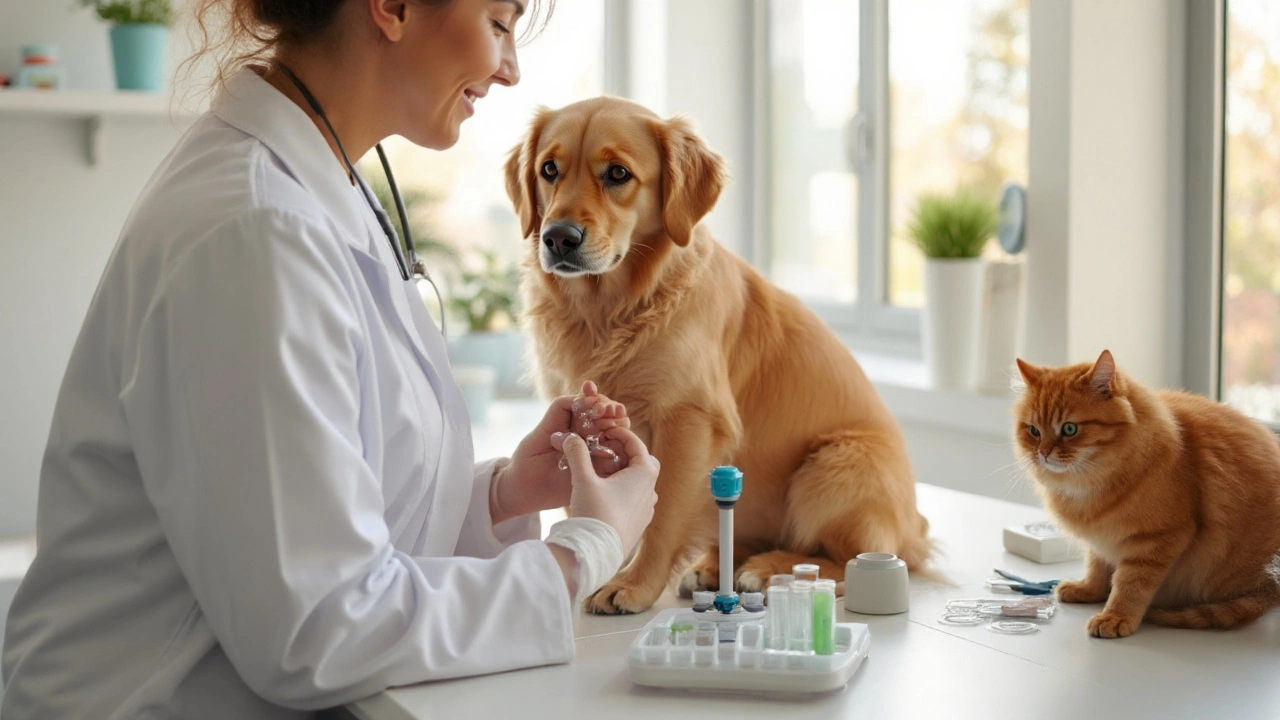Pet Allergies: What You Need to Know
If you love animals but find yourself sneezing, itchy eyes, or a runny nose around them, you might be dealing with pet allergies. It’s a common problem that can affect anyone, no matter where you live. The good news is that you don’t have to give up your pet – you just need to understand what’s causing the reaction and how to manage it.
Common Triggers
Most pet allergies are caused by proteins that live in an animal’s skin cells, saliva, and urine. When a pet licks its fur, the saliva dries and becomes airborne, mixing with tiny skin flakes called dander. These particles can stick to furniture, clothing, and even the air you breathe. Dogs, cats, hamsters, and birds can all produce these allergens, but cats tend to be the biggest culprits because their dander is light and stays in the air longer.
Other things that can make the situation worse are:
- Carpeted floors that trap dander.
- Soft toys and bedding that hold onto pet hair.
- Closed windows that keep indoor air stagnant.
If you notice a pattern – like symptoms getting worse after playing with your dog or cleaning the litter box – you’re likely reacting to the pet’s dander.
How to Manage Symptoms
First, confirm the allergy with a simple test from your doctor. A skin prick or a blood test can pinpoint which animal proteins are bothering you. Once you know the trigger, try these practical steps:
- Create pet‑free zones: Keep the bedroom and any other place you spend a lot of time off‑limits to pets.
- Clean often: Vacuum with a HEPA filter, wash pet bedding weekly, and wipe hard surfaces with a damp cloth to pick up dander.
- Bathe your pet: Giving your dog or cat a bath once a week reduces the amount of dander they shed.
- Use air purifiers: A unit with a HEPA filter can capture airborne allergens and make the air easier to breathe.
- Take allergy meds: Over‑the‑counter antihistamines, nasal sprays, or eye drops can relieve symptoms. Talk to a pharmacist for the right choice.
If symptoms stay strong despite these tricks, your doctor may suggest allergy shots (immunotherapy). Over time, the shots can teach your immune system to ignore the pet proteins.
Lastly, remember that staying hydrated, getting enough sleep, and eating a balanced diet help your body handle any irritation better. Simple habits like drinking water and eating fresh fruits can keep your immune system in good shape.
Pet allergies don’t have to mean saying goodbye to your furry companion. By knowing the triggers, cleaning smart, and using the right medicines, you can enjoy the love of a pet while keeping the sniffles at bay.

Common Pet Allergies & Simple Management Tips
Discover the most frequent allergic disorders in dogs and cats, how to spot symptoms, diagnose accurately, and manage them with practical treatment plans.
More Detail